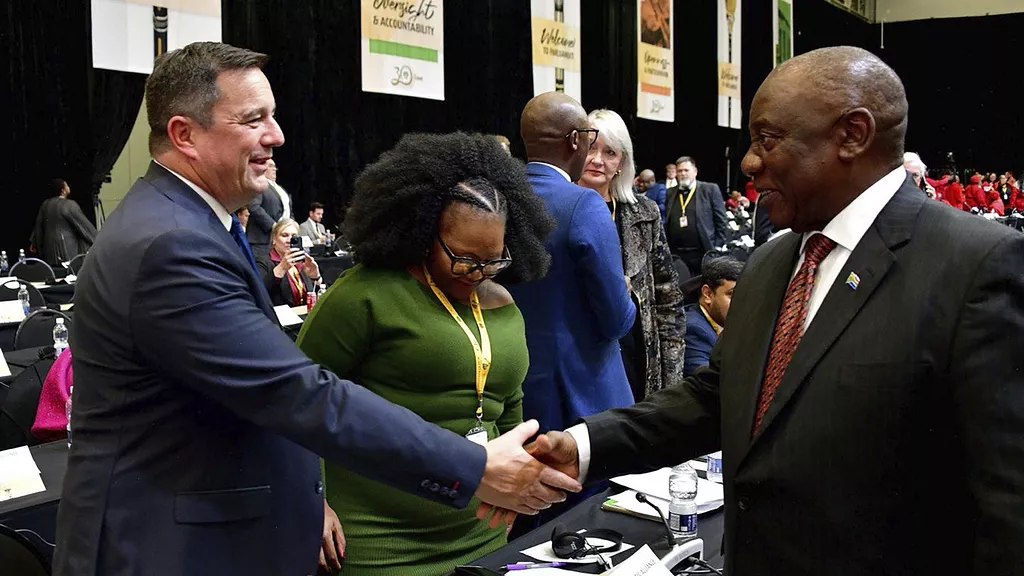South African Education Bill Sparks Controversy Over Language Rights and Government Unity
3 min read

A proposed education bill in South Africa, which seeks to grant the government increased authority over language policies in schools, has ignited significant debate. Critics argue that the bill jeopardizes the stability of the country’s new government of national unity and threatens the survival of Afrikaans-language schools, which cater to the Afrikaner community.
The bill aims to centralize control by allowing the government to set language and admission policies in schools, a shift from the current system where these decisions are made by school governing bodies primarily composed of parents and local leaders. The proposed change is controversial, particularly among those who support Afrikaans-language education.
South Africa officially recognizes 12 languages, with English being the predominant medium of instruction in many schools after a certain age. Afrikaans, a language with roots among Dutch and other European settlers from the 17th century, is still used in some schools. Government data indicates that out of 23,719 public schools, approximately 2,484 operate primarily in Afrikaans.
John Steenhuisen, leader of the Democratic Alliance (DA), announced that he would seek a meeting with President Cyril Ramaphosa before the bill is signed into law on Friday. Steenhuisen and the DA have expressed strong opposition to the bill, arguing that it undermines the right to education in students’ native languages. The DA, a major political party, joined the unity government led by the African National Congress (ANC) in June, following the ANC’s loss of its parliamentary majority for the first time since the end of apartheid in 1994.
The ANC supports the bill, believing it will address the exclusion of Black students from schools where Afrikaans is the sole medium of instruction. However, Steenhuisen contends that the bill, in its current form, poses a threat to the constitutional right to education in one’s mother tongue. He warned that if President Ramaphosa disregards these concerns and signs the bill into law, it could jeopardize the integrity and future of the government of national unity, potentially undermining the trust that formed the basis of the coalition.
Afriforum, a civil society group, has announced its intention to challenge the bill legally if Ramaphosa proceeds with signing it. The organization has voiced concerns that the bill could lead to the closure of Afrikaans-language schools and their transformation into English-only institutions. Afriforum argues that this shift would erode the availability of education in Afrikaans and compromise the cultural heritage of the Afrikaner community.
The controversy surrounding the bill highlights the broader tensions within South Africa’s political landscape as it navigates the complexities of a multi-lingual and diverse society. The proposed legislation underscores the delicate balance between promoting linguistic inclusivity and preserving the cultural and educational rights of minority communities.
As the debate continues, President Ramaphosa faces a critical decision: to sign the bill into law, which could have significant implications for language rights and educational policies, or to return it to Parliament for further amendments to address the concerns raised by various stakeholders. The outcome of this decision will likely have far-reaching effects on South Africa’s educational system and its political cohesion.